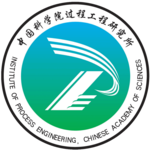Institute of Process Engineering,
Chinese Academy of Sciences
1 North 2nd Street, Zhongguancun
100190 Beijing
China
http://english.ipe.cas.cn/

Institute of Process Engineering,
Chinese Academy of Sciences
1 North 2nd Street, Zhongguancun
100190 Beijing
China
http://english.ipe.cas.cn/
The participants are working at the State Key Laboratory of Biochemical Engineering, which is a research institute on national level, and CAS Key Laboratory of Green Process and Engineering (IPE-CAS, China). The director is Prof Dr Huizhou Liu. The laboratories have a strong background in mixed culture fermentation optimisation, up-scaling, enzymatic process development, process engineering, and industrialisation of
bioprocessing. Both Key Laboratories in IPE focus on the integration of molecular biology, enzyme technology and process engineering. As a result of this, the laboratories establish relevant technology platforms including demonstration plant for biorefinery, to promote renewable and bio-based chemicals to replace petroleum resources, as well as provide innovative technology to upgrade traditional industrial processes to green biotechnology.
Recombinant production of various enzymes for sutilisation by IPE
Partner IPE is very experienced in enhancing the heterologous expression of various enzymes using Bacillus species. The genes coding for plastic degradation enzyme provided by other partners will be expressed in various Bacillus strains including the commercially available Bacillus subtilis ATCC6051. Using these strains, IPE will optimise the cultivation conditions in bioreactors. New fermentation strategies will be applied to enhance the enzyme expression levels. Enzyme yields and specific activities of each enzyme will be determined using the specific assays towards respective polymer types. Finally, single strains will be cultivated together in mixed cultures to produce specific enzyme cocktails in one-pot.
Mixed enzymatic plastic degradation (IPE)
Using the recombinant enzyme produced, IPE will scale up the mixed enzyme reactor developed by partner UG to up to 10 L for an optimised degradation of polyester mixtures at a desired thermophilic condition of up to 75°C. Further up-scaling of enzyme production until 250 L is possible. The optimised micro-reactor reaction will be scaled-up to higher scales by IPE and thus enable the extension of reaction conditions validated for an efficient degradation of plastic waste consisting of mixed polymer types at an industrial relevant scale.
Comprehensive analytics for hydrolysed plastics by IPE
To analyse plastic degradation products and evaluate plastic mixtures, analytical methods are key. The purpose of this subtask is to develop suitable methods for the analysis of hydrolysed mixed plastics. Plastic degradation products include oligomers and fully hydrolysed monomers, as well as not degraded solids. We have an array of analytical methods and tools including HPLC-MS, GC-MS, FITR, TGA, SEM, and NMR that will be utilised for the qualitative and quantitative analysis of plastic hydrolysis mixtures (Jia et al. 2010, Jia et al. 2011). With the established methods, the plastic hydrolysates from WP2 will be characterised in detail.
Separation of aromatic monomers by IPE
The purpose of this subtask is to establish a method that allows selective separation of aromatic monomers for subsequent PHA synthesis in Task 5.04. The aromatic monomers either originate from mixed plastic degradation, mainly TA from PET, or from de novo synthesis in Task 5.06. According to the physicochemical properties of the aromatic monomers and the other constituents of the mixed plastic hydrolysate, a suitable separation method will be chosen. We have at hand
everal separation methods such as adsorption, extraction, and filtration (Li et al. 2013, Li et al. 2014, Yu et al. 2015, Li et al. 2019). After establishing a method for aromatic separation, we will continue to work on the separation process to increase the separation efficiency.
Enzyme immobilisation for enhanced degradation of mixed plastic oligomers (IPE)
To increase the rate of plastic degradation from long chain polymers, via short oligomers to monomers, and to reduce enzyme costs, we will develop immobilisation techniques for oligomer hydrolases. Specifically, the plastic degradation enzymes of MIX-UP (Task 2.01, Task 2.02, and Task 2.03) will be tested for performance on respective plastic oligomers. Again, for PET, dedicated dimer hydrolases are described (Liu et al. 2018). The MIX-UP enzymes and enzymes from literature with high oligomer hydrolysis activity will be immobilised onto magnetic material to form multi-enzyme surfaces. We have established a range of technologies for protein immobilisation that can be tested. These include 1) magnetic particles functionalized with glutaraldehyde and hexamethylene diamin, to form different length arms for enzyme immobilisation, 2) magnetic graphene oxide functionalized with Na,Na-Bis(carboxymethyl)-L-lysine hydrate (NTA-NH2) to produce MGO-NTA nano-sheets, 3) material with silica for enzyme binding through covalent bonding (Liu et al. 2004, Zhou et al. 2015), and 4) particles of graphene oxide where the functional group on the graphene oxide surface interacts with enzymes. Adsorption capacities of the enzymes with different support materials will be determined. The enzyme stabilities will be studied at different pH, temperatures, and substrates. Storage stability, kinetic parameters, and catalytic and specific activities of the immobilised enzymes will be investigated. The re-usability of the immobilised enzymes for at least ten cycles of mixed plastic degradation will be estimated. The immobilised enzymes will be used for mixed enzymatic plastic degradation in Subtask 2.07.2.
Design of a sustainable pilot system for mixed plastic degradation (IPE)
In order to make the next move after validation of chosen process steps in industrial environments (Task 8.06) we will consolidate all that we learned in MIX-UP to design a pilot plant involving all relevant steps from protein production to the final valorisation. This will be done based on the optimised process steps developed in the single WPs and the final validation.
Pilot plant design is an important part of process engineering project (Zhang et al. 2016, Zhang et al. 2017). The aim of this task is to develop a complete concept of a
pilot plant for the production of PHA based on mixed plastic waste. The capacity of the pilot plant will be designed for 50 kg plastic waste per batch. The whole system includes all necessary utilities (e.g., water supply and drainage, gas supply, environmental protection etc.), control and feedback regulations (such as the control of temperature, pH, and agitation), and the production part, which can be divided into 5 systems (see also Fig. 2).
The calculations will feature mass and energy balances based on the results of WP2, WP4, and WP5. The environmental impact will be analysed including the treatment of waste gas, solid residue, and wastewater. The economic appraisal will be done by estimating the investment for equipment, material and environmental protection. The cost of production will be calculated based on the prices of the substrates and utilities. The period until the break-even-point is reached will be calculated including the estimate of time per batch.

Institute of Process Engineering, Chinese Academy of Sciences
State Key Laboratory of Biochemical Engineering
Deputy director of Division of Green Chemical Engineering
Prof. Jianmin Xing, Ph. D., deputy director of Division of Green Chemical Engineering, IPE-CAS, is an expert in the area of biodegradation, biocatalysis and biorefinery. His research is focused on metabolic engineering of biocatalysts, bioprocess monitoring and control, separation and purification of bioproducts, which is aiming at the degradation of recalcitrant compounds and the production of biochemicals. He has published more than 90 papers in international journals and acquired 22 practical technology-based patents. He has been honoured more than 10 times of important and influential awards such as the National Science and Technology Awards, the National Technology Invention Award. He has been a visiting scientist at Karlsruhe Research Center, Karlsruhe, Germany, and University of California, Davis, USA, in 2005 and 2009 respectively.

Institute of Process Engineering, Chinese Academy of Sciences
State Key Laboratory of Biochemical Engineering
Head of the Key laboratory of Green Process and Engineering
Prof. Huizhou Liu, Ph. D., head of the Key laboratory of Green Process and Engineering, Chinese Academy of Sciences, is an expert in area of separation science and engineering. He focuses his research on fundamental and applied aspects of separation science and engineering including extraction and magnetic separation technologies. Of specific interest are new methods of separation and purification of bio-products and natural product, hydrometallurgical separation processes and micro-scale in-depth extraction mechanism. So far, he has authored over 300 SCI journals papers, and was cited more than 6000 times by others. He has authored and co-authored nine monographs and more than 80 applications for invention patent. Also, he obtained 49 grants of the national invention patents. He has been honored more than 10 times of important and influential awards such as the National Science and Technology Awards, the National Technology Invention Award, and the CAS Technology Progress Award et al.

Institute of Process Engineering, Chinese Academy of Sciences
State Key Laboratory of Biochemical Engineering
Deputy director of Division of Green Chemical Engineering
Prof Liangrong Yang, Ph. D., deputy director of Division of Green Chemical Engineering, IPE-CAS, is an expert in the area of separation science and technology. Her research is focused on green separation technology for high valued target from low concentration complex system (Eg: bio-products from fermentation liquid and natural products, rare metal ions from salty lake brine, and noble metal ions from waste catalyst). She has published more than 50 papers in international journals and acquired 30 practical technology-based patents. She has been supported by the National science foundation for Excellent Young Scholars and has been honoured several times of important and influential awards such as the National Technology Invention Award, the China Petroleum and Chemical Industry Science and Technology Progress Award, and Youth chemical prize of Chinese chemical society. She has been a visiting scientist at Massachusetts Institute of Technology (MIT), Massachusetts, USA from 2014 to 2015.

Institute of Process Engineering, Chinese Academy of Sciences
State Key Laboratory of Biochemical Engineering
Scientific Staff
Dr Yan Zhang, associate professor, focuses her research on chemical kinetics, thermodynamics and system design. She has done lots of works on the process optimisation and development of chemical engineering and hydrometallurgy. She is extremely experienced in kinetic measurement and modelling, and participated in the instrument development of crystallisation kinetics. She is the first author of more than ten papers and co-author of three patents. She has extensive experience for international co-operation on scientific research, with international partners from McGill University, the University of British Columbia, New Mexico Institute of Mining Technology and SpacePharma R&D Israel Ltd et al.

Institute of Process Engineering, Chinese Academy of Sciences
State Key Laboratory of Biochemical Engineering
Scientific Staff
Dr Tingzhen Mu, assistant professor, in Institute of Process Engineering, Chinese Academy of Science. His current research focuses on removal and degradation of specific pollution matters using microbiological technologies. He was attempting to dig some kind of microorganisms from the environment and develop a stable and efficient mixed-bacteria-system to address some questions about environmental pollutant caused by sulfur compounds and nitrogen compounds. Particularly, he was greatly interested in the study of metabolic engineering of haloalkaliphilc microorganisms and relative engineering application. At present, a high-efficiency gene expression system and a gene editing system were developed, and some high-performance haloalkaliphilc strains were constructed successfully. He also made some study on immobilisation of microbiological cells aiming at improving the utilisation rate of cells in treatment process. Currently, He is the (co-)author of tens of publications and patents. His research was supported by some projects including National Natural Science Foundation of China, and Key Deployment Project of Chinese Academy of Sciences.

Institute of Process Engineering, Chinese Academy of Sciences
State Key Laboratory of Biochemical Engineering
Scientific Staff
Dr Hongnan Qu, assistant professor, has been well trained in both chemistry and biology. She got the bachelor’s degree majored in bioengineering and master’s degree majored in microbiology. Her previous projects were focusing on synthetic biology and metabolic engineering and had some excellent publications in those fields. She got her doctor’s degree majored in chemistry engineering, and focuses research on fundamental and applied aspects of the biochemical separation. Of specific interest is the construction and application of environmental responsive materials for bio-separation based on host-guest interaction. So far, Dr Qu has published 12 SCI papers and 1 invention patent.

Institute of Process Engineering, Chinese Academy of Sciences
State Key Laboratory of Biochemical Engineering
Scientific Staff
Dr Jiemiao Yu, assistant professor, graduated from the Chinese Academy of Sciences in 2016 with a Ph. D, Chinese Academy of Sciences, is a member of the Key laboratory of Green Process and Engineering. He focuses his research on separation and purification of bio-products and natural product, including preparation of new separation material and process of separation optimisation. So far, he has authored 10 SCI journals papers.

Institute of Process Engineering, Chinese Academy of Sciences
State Key Laboratory of Biochemical Engineering
Postdoc, Scientific Staff
Dr Nadia Samak, a postdoc at institute of process engineering(IPE) and assistant prof. at Egyptian petroleum research institute, has a good experience in the field of enzyme expression, metabolic engineering, laccase, biosurfactant, and biodegradation. Her research focuses on metabolic engineering and fermentation strategies for enzyme production for environmental contaminants degradation. Currently, she is interested in the production of tailored polyester degrading enzymes and microbial degradation using mixed thermophilic and halotolerant microbes for mixed plastic use. She is (co-)author of 5 metabolic engineering, enzyme expression, and waste biodegradation publications. She won the outstanding award “CAS President's International Fellowship Initiative (PIFI)” for postdoc research at IPE, and many other international awards. During her research career, she got the chance to be trained in Russia, Japan, Italy, South Africa, Jordan, and Germany.

Institute of Process Engineering, Chinese Academy of Sciences
State Key Laboratory of Biochemical Engineering
Ph. D student
Dr Liyan Chen, a Ph. D student in Institute of Process Engineering, Chinese Academy of Science, is a member of Prof. Huizhou Liu’s group. At present, his research is involved in the analysis and separation of monomers from plastics biodegradation. Up to now, he has published the corresponding results in Chemical Engineering Journal.